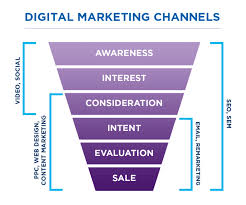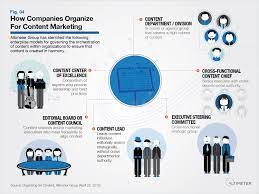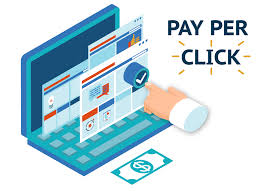The Top Digital Marketing Campaigns of 2020
In the ever-evolving world of digital marketing, 2020 saw some remarkable campaigns that captivated audiences, drove engagement, and set new standards for creativity and innovation. Let’s take a look at some of the standout campaigns that made a splash in the digital sphere last year.
Nike: “You Can’t Stop Us”
Nike’s “You Can’t Stop Us” campaign took the world by storm with its powerful message of unity and resilience. Through a series of visually stunning videos featuring athletes from diverse backgrounds, Nike inspired viewers to overcome challenges and push beyond their limits.
Burger King: “Moldy Whopper”
Burger King made waves with its unconventional “Moldy Whopper” campaign, which showcased the beauty of natural ingredients by featuring a decaying Whopper in time-lapse footage. This bold move challenged industry norms and sparked conversations about food quality and freshness.
Dove: “Courage Is Beautiful”
Dove’s “Courage Is Beautiful” campaign celebrated frontline healthcare workers during the COVID-19 pandemic by showcasing their resilience and dedication. Through poignant images and heartfelt messages, Dove honoured these heroes and highlighted the importance of self-care and compassion.
Coca-Cola: “Open Like Never Before”
Coca-Cola’s “Open Like Never Before” campaign encouraged people to embrace change and seize new opportunities in a post-pandemic world. By emphasising unity, optimism, and adaptability, Coca-Cola connected with audiences on a deeper emotional level and inspired hope for the future.
Spotify: “2020 Wrapped”
Spotify’s annual “2020 Wrapped” campaign leveraged user data to create personalised summaries of listeners’ music preferences throughout the year. By offering insights into their listening habits and recommending new content, Spotify engaged users in a fun and interactive way while celebrating their unique tastes.
These are just a few examples of the outstanding digital marketing campaigns that left a lasting impression in 20
As we look ahead to new trends and strategies in the digital landscape, these campaigns serve as inspiration for brands seeking to connect with audiences in meaningful ways.
Top 7 Tips for Crafting Successful Digital Marketing Campaigns in 2020
- Focus on creating high-quality and engaging content that resonates with your target audience.
- Utilize social media platforms effectively to connect with your audience and build brand awareness.
- Implement video marketing strategies as videos have proven to be highly engaging for users.
- Optimize your website for mobile devices to ensure a seamless user experience for mobile users.
- Personalize your marketing campaigns to cater to the specific needs and preferences of individual customers.
- Invest in influencer partnerships to reach a wider audience through trusted personalities in your industry.
- Use data analytics to track the performance of your campaigns and make data-driven decisions for better results.
Focus on creating high-quality and engaging content that resonates with your target audience.
To excel in digital marketing campaigns in 2020, it is crucial to prioritise the creation of high-quality and engaging content that truly connects with your target audience. By crafting compelling and relevant content that resonates with the interests, needs, and preferences of your audience, you can capture their attention, build trust, and drive meaningful engagement. In a landscape saturated with information, focusing on delivering valuable and captivating content is key to standing out and forging lasting relationships with your customers.
Utilize social media platforms effectively to connect with your audience and build brand awareness.
To excel in the realm of digital marketing campaigns in 2020, it is crucial to harness the power of social media platforms effectively. By leveraging platforms such as Facebook, Instagram, Twitter, and LinkedIn, businesses can establish direct connections with their target audience, foster engagement, and enhance brand visibility. Through strategic content creation, community engagement, and targeted advertising, brands can not only reach a wider audience but also cultivate a loyal following and strengthen brand awareness in the competitive digital landscape of 2020.
Implement video marketing strategies as videos have proven to be highly engaging for users.
In the realm of digital marketing campaigns in 2020, one key tip that stood out was the effectiveness of implementing video marketing strategies. Videos have emerged as a powerful tool for engaging users and capturing their attention in a crowded online landscape. With their ability to convey messages visually, evoke emotions, and tell compelling stories, videos have become a preferred medium for brands looking to connect with their audiences on a deeper level. By incorporating video content into their digital marketing efforts, businesses can enhance engagement, increase brand visibility, and create memorable experiences that resonate with users long after they have viewed the content.
Optimize your website for mobile devices to ensure a seamless user experience for mobile users.
Optimising your website for mobile devices is crucial to delivering a seamless user experience for mobile users in the realm of digital marketing campaigns in 2020. With the increasing use of smartphones and tablets, ensuring that your website is responsive and user-friendly on mobile platforms is essential for engaging and retaining visitors. By prioritising mobile optimisation, you can enhance accessibility, improve loading times, and ultimately drive higher conversion rates by catering to the needs and preferences of on-the-go users.
Personalize your marketing campaigns to cater to the specific needs and preferences of individual customers.
In the realm of digital marketing campaigns in 2020, a key tip that stood out was the emphasis on personalisation. By tailoring marketing efforts to align with the unique needs and preferences of individual customers, brands were able to forge deeper connections and drive engagement. This approach not only enhances customer experience but also increases the likelihood of conversions and brand loyalty. Personalisation allows businesses to deliver targeted messaging that resonates with consumers on a more personal level, ultimately leading to more meaningful interactions and long-term relationships.
Invest in influencer partnerships to reach a wider audience through trusted personalities in your industry.
Investing in influencer partnerships proved to be a successful strategy for many brands looking to enhance their digital marketing campaigns in 2020. By collaborating with trusted personalities in the industry, businesses were able to expand their reach and connect with a wider audience authentically. Influencers played a key role in building credibility, driving engagement, and creating meaningful connections with consumers, showcasing the power of leveraging influential voices to amplify brand messages effectively.
Use data analytics to track the performance of your campaigns and make data-driven decisions for better results.
Utilising data analytics to monitor the effectiveness of your digital marketing campaigns is crucial for achieving success in 2020. By tracking key performance metrics and analysing data insights, businesses can make informed, data-driven decisions to optimise their strategies and enhance campaign performance. This approach allows marketers to identify what works well, understand audience behaviour, and adjust their tactics accordingly to drive better results and maximise ROI. In a competitive digital landscape, leveraging data analytics is a powerful tool for staying ahead of the curve and achieving measurable success in marketing efforts.










